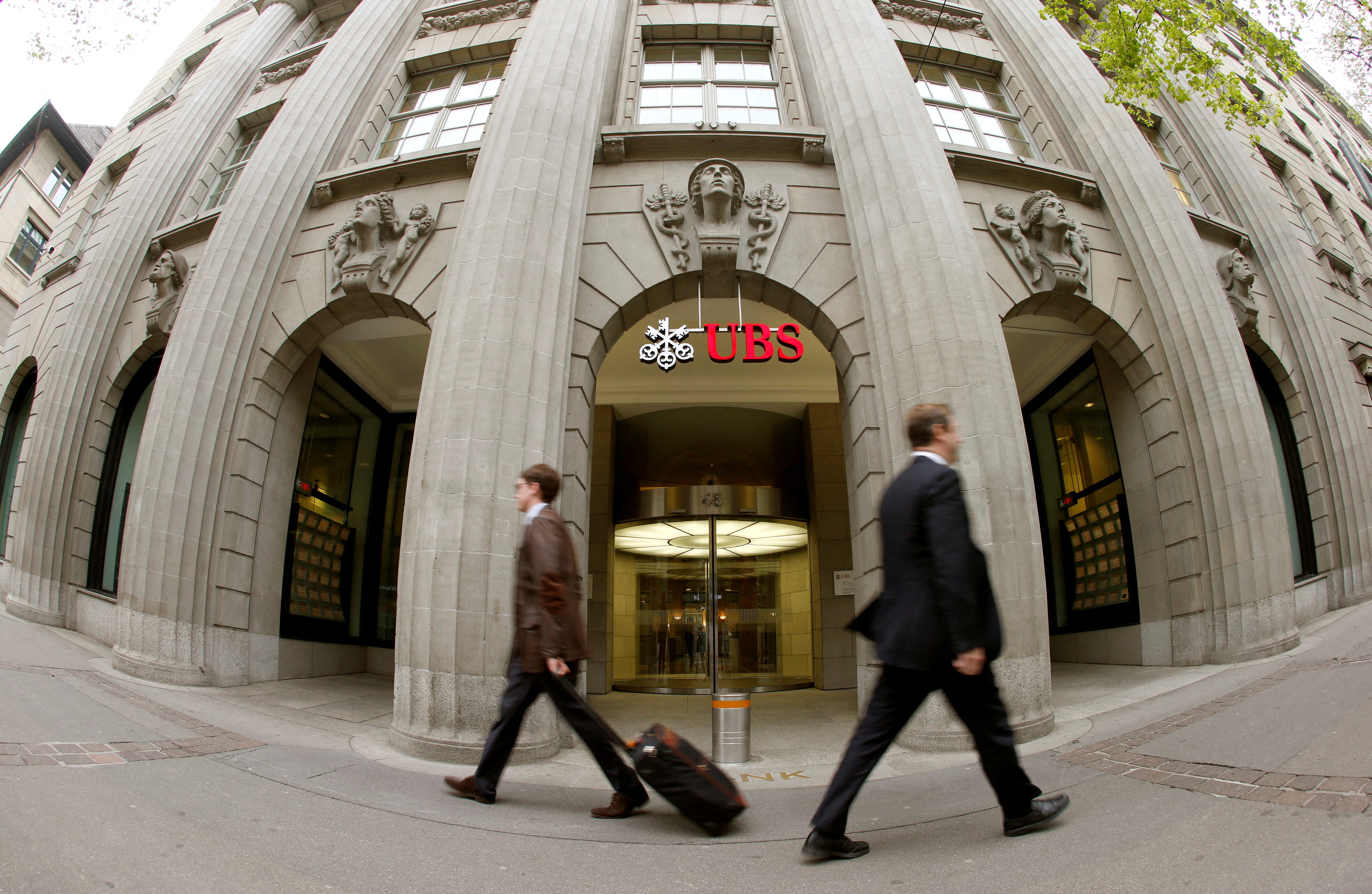[ad_1]

People walk past the headquarters of Swiss bank UBS in Zurich April 30, 2013. REUTERS/Arnd Wiegmann/File Photo Acquire Licensing Rights
ZURICH, Nov 7 (Reuters) – UBS Group (UBSG.S) posted a $785 million loss in the third quarter after expenses tied to the Swiss bank’s takeover of Credit Suisse while signalling that its core wealth business is stabilising.
The loss was worse than the $444 million loss attributed to shareholders that analysts had expected in a UBS poll.
“We are executing on the integration of Credit Suisse at pace and have delivered underlying profitability for the group in the first full quarter since the acquisition,” said Chief Executive Sergio Ermotti.
The loss came with a silver lining.
The group had net new money in its wealth management arm of $22 billion, driven in part by winning new customers, and Credit Suisse also saw money flow into the business for the first time since early 2022.
Analysts at Goldman Sachs had expected $14 billion for the group, with the Swiss bank already disclosing $8 billion for the months of July and August.
Stripping out the impact of the takeover, UBS made an underlying profit of $844 million.
Since the shotgun marriage – the first merger of two global systemically important banks – was completed in June, UBS has wrestled to stabilise the group.
With the takeover, UBS now oversees more than $5 trillion in assets. It has been working to recover from the exodus of client funds from Credit Suisse with above-market rates on deposits. It is also trying to retain clients that would have had funds in both banks and may now look to spread risk.
It also continued to cut staff, which accounted for a big chunk of the more than 2 billion Swiss francs ($2.22 billion) of costs related to integration.
UBS said it employed 115,981 people at the end of September, down from 119,100 full-time equivalents working at the combined bank at the end of June.
It has said it would axe a number of jobs including 3,000 in Switzerland alone to achieve cost savings following the takeover.
The cuts will be painful for Switzerland’s financial centre of Zurich, where the banks dominate the landscape.
The biggest bank merger since the global financial crisis, orchestrated by the Swiss state to avert Credit Suisse’s collapse, created a group whose assets dwarf the economic output of the country, whose regulators had already struggled to control big lenders.
The bank has pushed back against suggestions of beefing up its capital. Its chairman Colm Kelleher on Tuesday said moves from certain regulators to talk about more scrutiny of capital are “misguided”.
Although Switzerland bankrolled the rescue through guarantees and central bank funding, UBS has since dropped state support, leaving its politicians with little leverage over the group.
($1 = 0.9007 Swiss francs)
Writing by Noele Illien and John O’Donnell; Editing by Christopher Cushing
Our Standards: The Thomson Reuters Trust Principles.
[ad_2]
Source link
